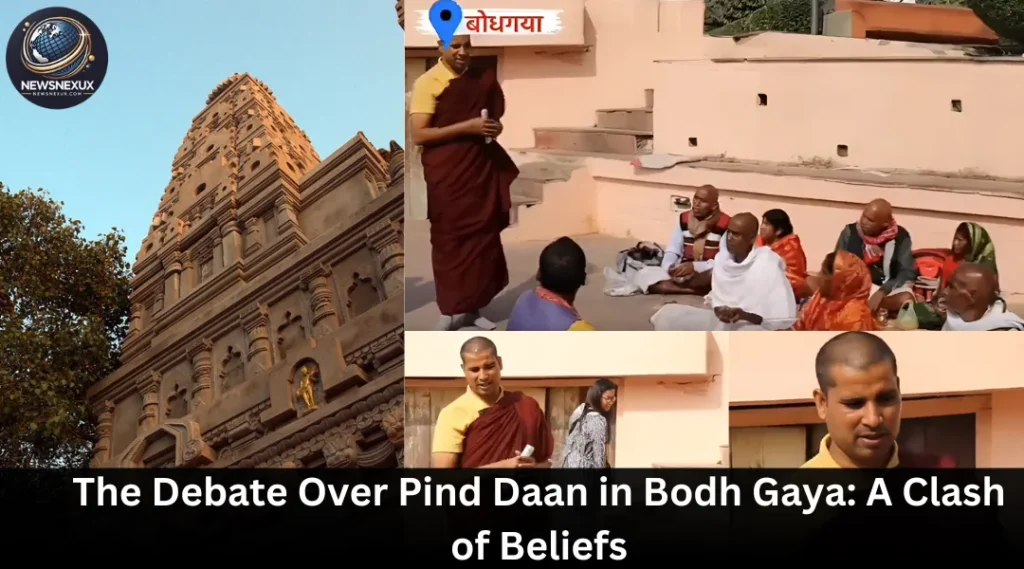
Bodh Gaya, a revered Buddhist site, has recently become the center of a discussion between Hindu priests and Buddhist monks over the practice of Pind Daan—a Hindu ritual performed for the peace of departed souls. This debate raises fundamental questions about religious beliefs, traditions, and the sanctity of spiritual locations.
SPREAD IT LIKE WILDFIRE BEOS
— The Eugenist (@Eugenist_) February 27, 2025
SHIT EATER HINDOOS OUT OF MAHA BODHI MAHA VIHAR
☸ 🪷 🐍 🌕 卐 pic.twitter.com/y3BjXkoXo8
The Conversation Between the Buddhist Monk and the Pandit
A Buddhist monk questioned a Hindu Pandit about the legitimacy of performing Pind Daan at Bodh Gaya. The Pandit affirmed that it is a Hindu belief to conduct such rituals. However, the monk argued that if it is a Hindu practice, it should be conducted in places like Kashi or Mathura, known for their Hindu religious significance. In response, the Pandit insisted that the ritual has traditionally been carried out in Bodh Gaya for generations.
The monk then raised a crucial point: “If Pind Daan is conducted in Gaya, which is a large area, is there any scriptural evidence supporting its legitimacy here?” He emphasized that Bodh Gaya is a sacred Buddhist site, associated with Lord Buddha’s enlightenment, and should be preserved for Buddhist traditions.
To reinforce his argument, the monk’s companion posed a rhetorical question: “If someone offers Namaz in a Ram temple or rings a church bell inside a Vishnu temple, would that be acceptable?” The monk stressed that just as attire signifies one’s identity—such as a Pandit’s traditional clothing—the sanctity of a religious place must also be maintained. According to him, Buddhist monasteries have their own dignity and beliefs, and they should not be overshadowed by practices from other faiths.
A Call for Change
The Buddhist monk further asserted that the Buddhist community had been passive about this issue in the past but is now awakening. He made a firm declaration that from the following year onwards, Pind Daan and Shraddha rituals would not be permitted in Bodh Gaya. He urged those performing the rituals to invite Pandits to their homes instead, as the true peace of the departed soul is believed to be attained at the place of their demise.
This debate has sparked a broader discussion on religious coexistence, the preservation of sacred sites, and the need for mutual respect among different faiths.
You guys don't know the importance of Buddhagaya. You just want to claim the temple.
— iambhargav (@Bhargav027) February 28, 2025
And when did Buddha said to discriminate against others? and their beliefs?
And the Swami in video, If he doesn't like the place then he should suggest different and ensure everyone come.
Frequently Asked Questions (FAQs)
1. What is Pind Daan?
Pind Daan is a Hindu ritual performed for the peace of deceased ancestors, typically conducted in places of spiritual significance.
2. Why is Bodh Gaya significant for Buddhists?
Bodh Gaya is the site where Lord Buddha attained enlightenment, making it one of the most revered places in Buddhism.
3. Why do Hindus perform Pind Daan in Bodh Gaya?
Many Hindus believe that performing Pind Daan in Gaya grants salvation to their ancestors, a tradition followed for centuries.
4. Is there any scriptural evidence supporting Pind Daan in Bodh Gaya?
This remains a debated topic, with Hindu priests advocating for tradition and Buddhist monks questioning its legitimacy in a Buddhist sacred site.
5. What was the Buddhist monk’s main argument?
The monk argued that religious places should maintain their sanctity, and Hindu rituals should not be conducted at a Buddhist site.
6. What alternative did the monk suggest for performing Pind Daan?
He advised Hindus to invite Pandits to their homes for performing the rituals rather than conducting them in Bodh Gaya.
7. Has there been any legal intervention in this matter?
As of now, the issue remains a subject of religious debate rather than legal action.
8. How have Hindu priests responded to this issue?
Hindu priests maintain that Pind Daan in Bodh Gaya is an age-old tradition and should continue.
9. What impact could this debate have on religious tourism?
If restrictions are imposed, it could affect the number of Hindu pilgrims visiting Bodh Gaya for Pind Daan ceremonies.
10. What is the broader significance of this debate?
This debate highlights the challenges of religious coexistence, the need for mutual respect, and the importance of preserving the sanctity of religious sites.
This discussion continues to unfold, and it remains to be seen how the involved communities and authorities will address the matter in the future.
